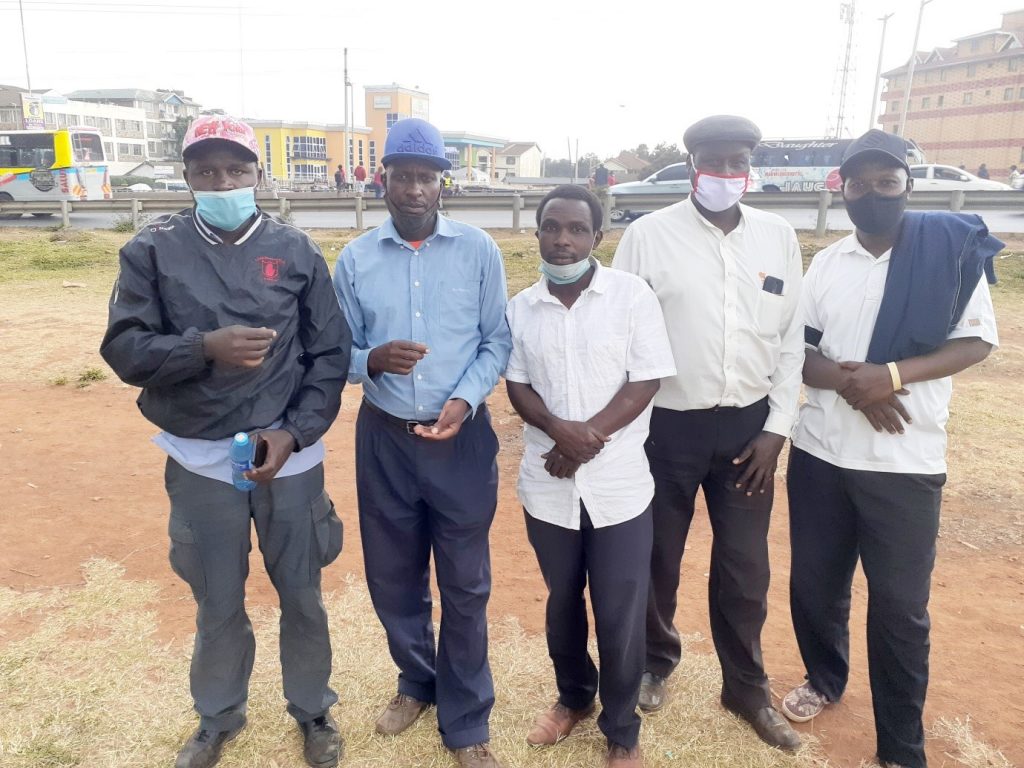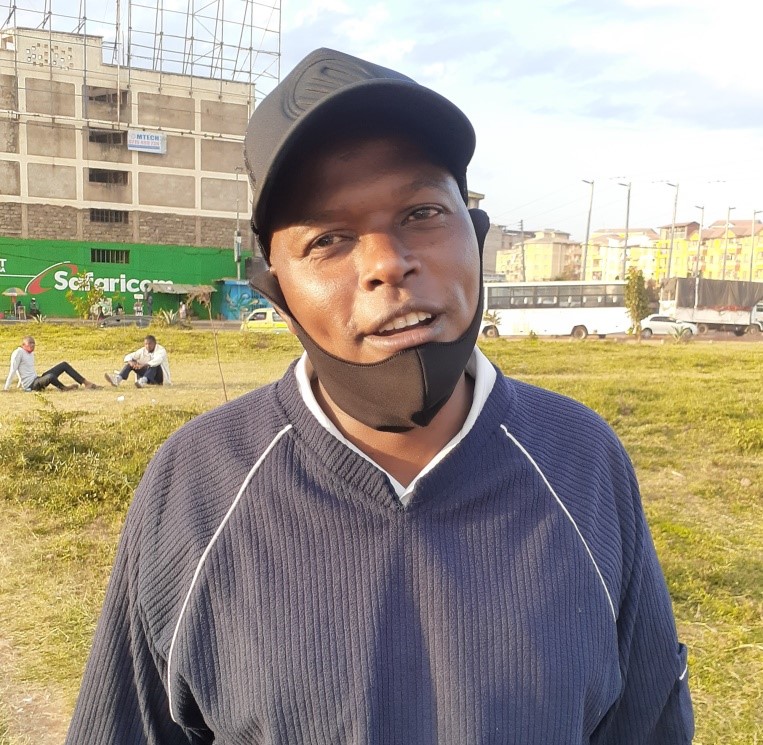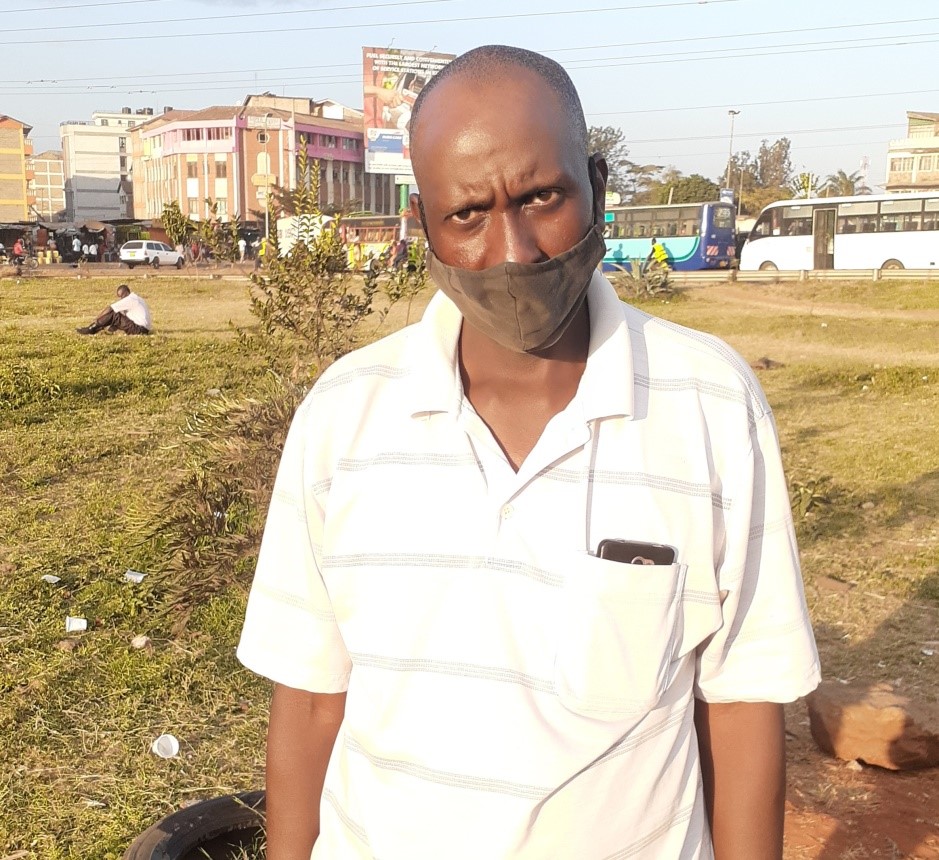Lockdown would have saved lives

The dreaded Covid 19 disease spreads from person to person, making operators in the transport industry a likely part of the chain of infection. Many players within the industry appreciate this fact, as we found out on a field visit. Their fear of catching or transmitting the disease is only counterbalanced by the pressing need to feed their families. As a result, they find themselves caught almost literally between the devil and the deep blue sea.
“I have not paid my rent for three months now,” says Evans Kahara. For more than ten years he’s been a matatu driver with Umoinner matatu SACCO plying the Nairobi city centre-Donholm-Umoja route. “I appreciate what the government and health experts are telling us about Covid 19. I just wish that wearing a mask, washing my hands and staying at home would pay my bills.”
As with most other industries, Kahara’s transport business has been hugely impacted by the Covid 19 pandemic. In fact, he no longer has a matatu to drive. His employer of many years withdrew his matatu from the road when the Corona virus made it financially-untenable to keep it there. So Kahara became jobless. From then on, he became a “squad” driver – one who waits in line until other drivers need a break or for some reason cannot work, to get the opportunity to drive and earn some money.
At the Outerring Road-Jogoo Road intersection where he hopefully waits, there are lots of other drivers. You can identify them by their black trousers-white shirts uniform. “There are about thirty of us here,” Kahara says. “Most of us had a matatu under our charge every day of the week. When Covid 19 struck, we found ourselves without recourse. So we wait here. There are days when some of us return home in the evening having not got a chance to drive at all. We go back home empty-handed.”

As he tells the story of Covid 19’s impact on their lives, he is surrounded by a number of the other drivers. At first they try to socially-distance but the animated talk by Kahara draws them in. Repeatedly, I have to remind them to create space between them and the next person, and to keep their masks firmly in place. But one can see just how easily the virus could spread among them. Desperation plays on their faces and one of them finally gets to ask me if I will be giving them a little money after the interview.
“I have a wife and children,” Kahara picks up. “But we are all forced to make sacrifices and eat less. On a good day when I get to drive, I go home with sh500. The 9pm curfew means time is always against us, however much we wish to extend working hours to carry more people and earn more money. So we close work by 8pm. It also means I have to take a boda boda (motorbike taxi) home to beat the curfew. The fare is sh100. I save another sh100 for fare to work tomorrow morning. The sh300 balance is what feeds the family tonight and the following day while I’m away. I have to sacrifice lunch and my wife and children have to be content with less-than-enough to eat.”
Living from hand-to-mouth as they are doing, what happens with rent? Almost as one, they tell me that they all have rent arrears. Some have not paid their landlords for five months, others for three. Jamleck Nganga, who has a four-month rent arrears, says it no longer bothers him. “The landlord understands,” he reckons. “In fact, sometimes when he knocks to check if I have any money for him I tell him, ‘You’ve done well to come. Can you please buy me some vegetables? We are starving here.’”
As caring as Nganga is about his family, he worries still more that he might infect them with the virus if he catches it. He says matatu operators insist that passengers have their masks on. However, some seem to forget. “Even among us as drivers, we fear each other. You do not know where someone has been, nor do you want to infect another person in case you are asymptomatic. There’s a whole lot of stress related to this. So we try to always have our masks on.”

How do they survive during the lean days when driving opportunities become even scarcer? “We try to be our brother’s keeper,” Nganga continues. “Those who have driven and earned some money share the little they’ve earned with one or two of the others who haven’t. But it’s not easy,” and he proceeds to illustrate his point. “Recently one of us lost his wife to sickness. We could not even contribute money to help him buy a coffin, let alone fuel a vehicle to transport the body to his home. We just condoled with him but could not do anything more. He had to find a solution on his own.”
Such a dire state of affairs is the result of several factors. A driver, Steve Mutua, says Covid 19 has unleashed against them a conspiracy of factors never before witnessed in in the industry.
“First, understand that there are a lot fewer passengers. A matatu that ordinarily carried 33 passengers now carries a maximum of 16 to comply with the demands of social distancing. But you cannot always carry that number because fewer people are actually travelling. And the few who travel are financially-strapped. You raise fare to compensate for the lean moments, they avoid your matatu and wait for a cheaper one. It takes longer to get the necessary number of passengers. We therefore make fewer trips overall, and so are not able to share the drives with all our colleagues here to help them make a little money for their families.”
If these matatu operators had the power to change things, how would they do it? To this Henry Omondi says, and is supported by a chorus of the other voices, that the government could have acted better.
“Even without taking extra cash out of the Treasury, the government could have used the support given by its international partners and local individuals and organisations to better effect,” he says. “A total lockdown across the country would have worked and cost very little money. They could have ordered everybody indoors, provided food or a stipend, and made testing mandatory for every citizen. After a month, a second round of testing.” Omondi suggests that families found to have an infected member would have been given closer attention and medical support. “After two months, it is likely we would have decimated Corona virus.”
This view is not shared by Benson Sagiri, a boda boda rider. He reckons that the government should have opened up the economy while enforcing the masking and sanitising. “I used to make the most money at night,” Sagiri says, “when clubs and bars were active. The curfew should be lifted, testing escalated and the vulnerable groups forced to stay at home. Let the economy run. A stagnant economy is doing irreparably more damage to people’s health than Covid 19.”
A majority of the matatu operators say that the one lesson they are learning from this pandemic period is the importance of having several streams of income and saving. “One source makes you vulnerable and having no saving means you’re badly exposed,” once concluded.
Our Services
Brochures
View our Centre for Behaviour Change and Communication Portfolio.













